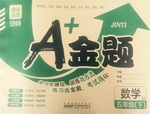题目内容
Yangzhou is one of the most f1. areas in China for its jade(碧玉,翡翠) production and long h2. in jade carving(玉雕). Over t3. of years, generations of jade craftsmen(工匠) have d4. themselves to continuing and innovating(创新) the ancient t5. skills to create many beautiful jade articles of different shapes and sizes.
In 2010, China opened its first national-level jade museum, w6. was updated from the original Yangzhou Jadeware Museum, in Yangzhou. China Jade Museum is opposite Yangzhou Jadeware Factory and c7. an area of 2,875 square meters. Yangzhou jade culture is fully displayed in different forms .
As one of the carriers(载体) of history, China Jade Museum will play an i8. role in protecting Yangzhou jade carving effectively—the National Intangible Cultural Heritage(国家非物质遗产), and in further advancing China’s jade c9. and pushing the d10. of traditional arts and crafts.
 A加金题 系列答案
A加金题 系列答案 全优测试卷系列答案
全优测试卷系列答案
